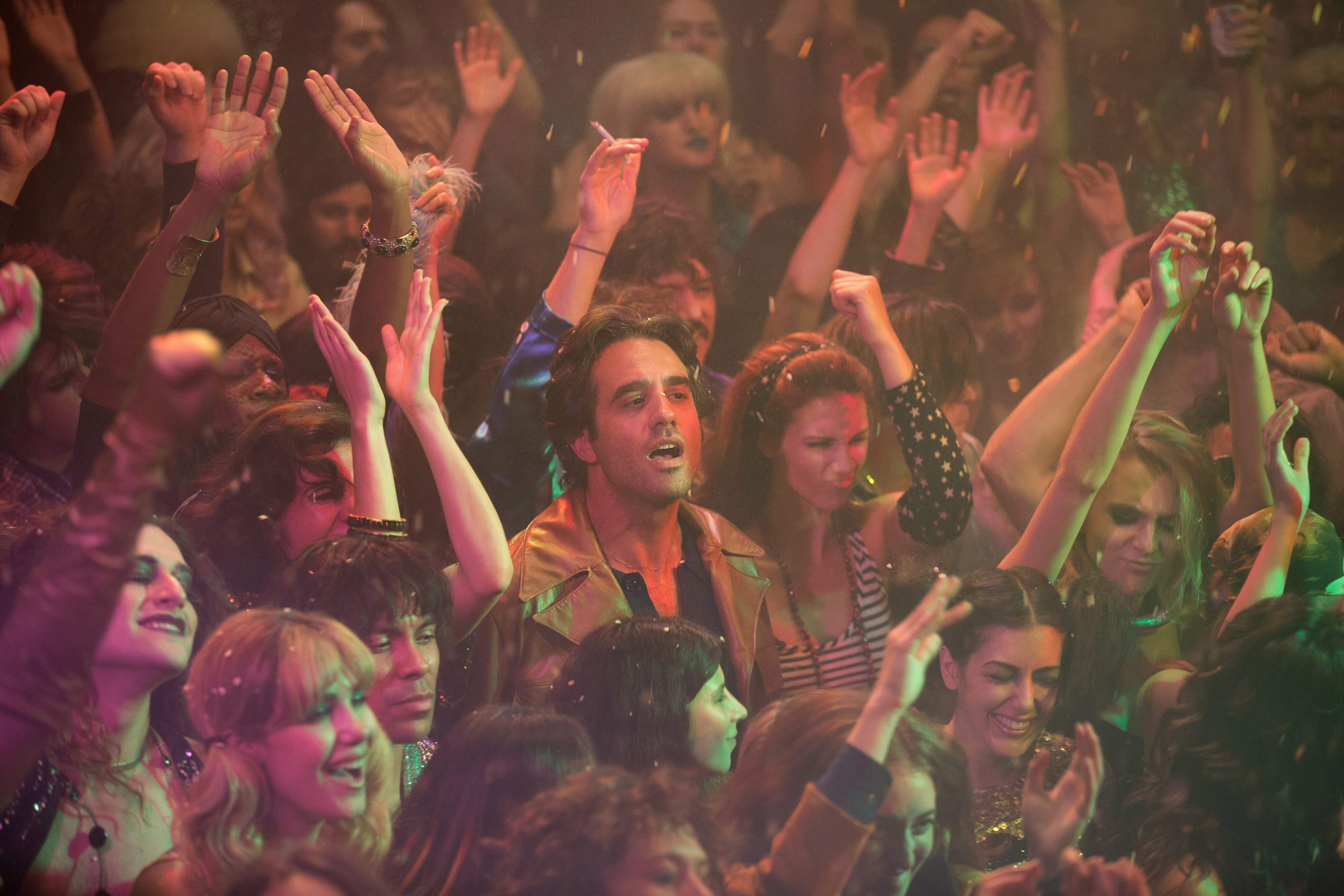The function of a TV pilot is to test the show’s viability, and “Vinyl” passes all tests of interest with flying colors. The HBO music series is helmed by director Martin Scorsese, rock legend Mick Jagger and writer Terrence Winter. Together, this trio sends up the early-70s New York music scene with keen admiration and vibrant wit. It’s a debauched, uneven two hours of TV that go by in a flash and will leave you hungry for more. Even this early on, “Vinyl” shows so much promise that it makes me giddy with anticipation for this new season of TV.
It’s 1973. Our hero, Richie Finestra (Bobby Cannavale), is the cocky music mogul in charge of American Century, a once-powerful record label now sliding into insignificance. They’re losing money fast, so Richie snarls and pressures his underlings to find the next chart-topping act. He hopes to close a deal with Led Zeppelin, but has to face the wrath of their savage manager Peter Grant and their preening lead singer, Robert Plant. Meanwhile, Jamie, the “sandwich girl” secretary (Juno Temple), uses her shrewd PR skills to mold a ragtag punk band into a promising cash-cow: all image, no substance, beaucoup bucks. But Richie, too, finds an answer when he hears the amazing, up-and-coming band The New York Dolls playing at a punk rock sock-hop.
“Vinyl” is not a new story: out-of-touch suits who think with a moneyman’s mentality about what’s worth producing, acting brattily towards the people they love. The show glorifies the producers who handle the backdoor politics of the music we consume, rack-focusing from the icons to the iconmakers.
What, then, keeps the show’s ball rolling? One word: brazenness. “Vinyl” manages to tell its story with the devilish precociousness that’s become a staple of Scorsese’s late-capitalist romps (“Wolf of Wall Street”). Dark humor and a Richard Lester sensibility towards editing, kinetics and movement keep “Vinyl” crisp throughout.
The camera’s attitude is perfect for capturing the heroes at the heart of “Vinyl.” Bobby Cannavale (“Boardwalk Empire”) brings Richie to breathtaking life. Distinct from the pack of diet-“American Hustle” crazies that crowd his periphery, Richie mixes business savvy with good musical taste. Though he’s in it for the money, he’s a rock’n’soul fanboy at heart, striving to take music back to the days of Otis, Elvis and (in one crazy-good dream sequence) Bo Diddley.
His tastes draw him to talent like Lester Young, the straight-fire bluesman played by the lively Ato Essandoh. Lester must retain his artistic soul while under pressure from payola DJs and Italian gangsters. Unlike your typical TV show where the writers would let the terrified schmuck be shaken down and left for dead, in “Vinyl,” Lester fights back.
In that respect, Lester shares a pluckiness with Jamie, the pilot’s third shining star. She’s a streetwise gal (of the Jennifer Lawrence variety) who poses promising threats to the male-run universe of “Vinyl.” Her genius idea to save American Century not only runs at odds against Richie’s philosophy, it sets her up to be Richie’s biggest threat. She takes a businesswoman’s approach to music (defined by image-friendly bands like The Sex Pistols), defying Richie’s heart-and-soul appreciation of rock (defined by minimalist masterbands like The Ramones and The New York Dolls).
There are hiccups and weak spots, as is usual with pilots. The January Jones-Anna Gunn brand of meek TV wife (here played by a wispy Olivia Wilde) proves to be no more than a cliché deserving a swift end. And Scorsese’s propensity for hedonistic campiness can get taxing at times, especially in the info-dump narration (a once-fresh, now tired Scorsese trope) at the show’s beginning. But such niggles are soon forgiven when placed next to the electric triumvirate of Cannavale, Temple and Essandoh. The inevitable clash between three excitingly different personalities is sure to be glorious.
Aside from being good TV, “Vinyl” has a surprising amount to say about our relationship with popular music. To be a success, you have to spin something in a new way that audiences will intellectually love. But being a success also means being commercially viable; if you hope to have an effect on the music industry, you better hope people are buying your records. How do you make “pop” music artistically interesting? What matters more: being popular today or being remembered forever? The New York Dolls, the Beatles, Otis and Kendrick all figured out the function between popularity and artistry. Can “Vinyl” do the same?
Contact Carlos Valladares at [email protected].
